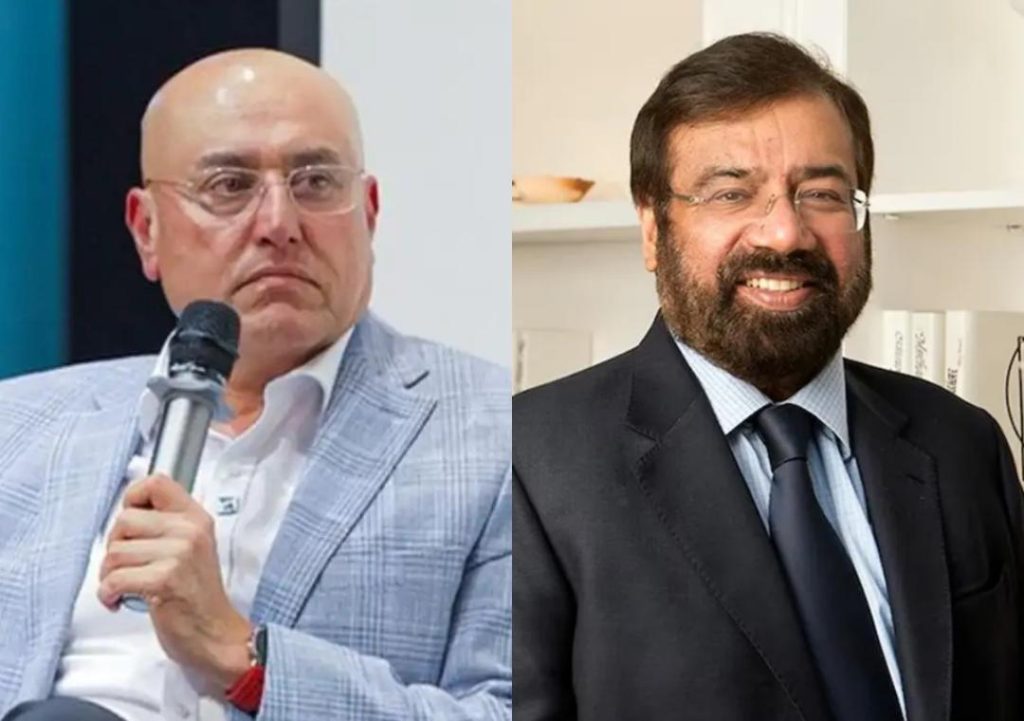
Hotmail Co-founder says “truth is anti-India”, Goenka replies “Living in US & lecturing us?”
The statement made by Hotmail co-founder Sabeer Bhatia, claiming that those who speak the truth in India are termed “anti-national”, has sparked a heated debate on social media. Bhatia’s comments came in response to a question about whether speaking the truth in India is a threat to the country. His response sent shockwaves across the nation, with many criticizing his remarks.
However, billionaire Harsh Goenka, not one to mince words, fired back at Bhatia with a scathing reply. Goenka, known for his sharp tongue and unwavering patriotism, tweeted, “Living in California and lecturing a billion Indians back home?…India doesn’t need sermons from those who packed up and left.”
Goenka’s response was a direct hit at Bhatia, who has been living in the United States for several years. Bhatia’s comment that “truth is anti-India” was seen as an attempt to silence those who dare to speak out against the government or those in power. Goenka’s riposte was a clear rebuke of Bhatia’s statement, implying that those who have left the country have no right to lecture others on what is best for India.
The debate surrounding Bhatia’s comments is not new. The term “anti-national” has been used by the Indian government and its supporters to silence dissenting voices and critics of the government. Many have argued that the term is being used to stifle free speech and intimidate those who dare to speak out against the government.
Bhatia’s statement, however, took the debate to a new level. By suggesting that speaking the truth in India is anti-national, he implied that those who speak out against the government or those in power are somehow unpatriotic. This has sparked outrage among many Indians, who see such comments as an attempt to silence their voices.
Goenka’s response, on the other hand, was a clear defense of the right to free speech. By pointing out that Bhatia is living in the United States and lecturing Indians from afar, Goenka implied that Bhatia has no right to dictate what is best for India. Goenka’s tweet was seen as a slap in the face for Bhatia, and many Indians took to social media to applaud Goenka’s response.
The debate surrounding Bhatia’s comments is a complex one. On the one hand, it is true that India has a long history of suppressing dissenting voices and silencing critics of the government. The term “anti-national” has been used to stifle free speech and intimidate those who dare to speak out against the government.
On the other hand, it is also true that speaking the truth in India can be challenging. The country has a complex and often contentious political environment, with many competing interests and ideologies vying for power. In such an environment, it is natural that some individuals may feel the need to speak out against the government or those in power.
However, Goenka’s response to Bhatia’s comments suggests that the country is not lacking in patriots who are willing to speak out against the government or those in power. Goenka’s defense of free speech and his willingness to take on Bhatia’s comments are a testament to the power of the human spirit and the importance of protecting the right to free speech.
In conclusion, the debate surrounding Bhatia’s comments is a complex one, with many competing interests and ideologies vying for power. While it is true that India has a long history of suppressing dissenting voices and silencing critics of the government, it is also true that speaking the truth in India can be challenging.
Goenka’s response to Bhatia’s comments was a clear defense of the right to free speech and a testament to the power of the human spirit. His willingness to take on Bhatia’s comments and defend the right to speak out against the government or those in power is a reminder that India is a country that values freedom and democracy.
News Source:






